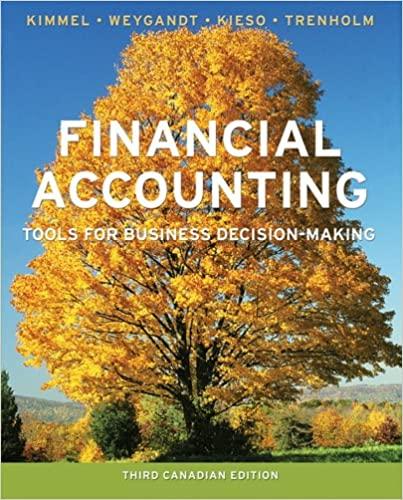a. Critically evaluate the costing system of A-Print. Limit your response to 200 words. (6 marks)
b. Why would Ho be concerned about the companys profitability? Explain with supporting computations. Limit your response to 50 words. (5 marks)
c. Should Ho take the job offered by Catherine Liu? Explain with supporting computations. Limit your non-computational response to 250 words. (9 marks)





QUESTION 1 Three weeks before the company's December year-end of 2020, Vincent Ho, the CEO of A-Print, has received a phone call from Catherine Liu, a director of Anderson Consulting, requesting a print of 10,000 copies of a corporate brochure in five working days. She gave Ho the specifications and mock-up and said that there had been so many delays in getting the copy ready that her regular printer no longer has any capacity this week to accommodate this urgent order. She claimed that he has previously agreed to do the work for $680, and Ho could have the job at the same price. Given the urgency of this job, Liu needed an answer by the end of the day. A-Print is a family business set up by Ho's father in Hong Kong during the 1970s. Although the company is only a medium-sized firm, it is well-known in the industry for excellent quality lithographic printing. However, due to the COVID-19 pandemic in recent years, the company's business dropped quite significantly and Ho is very concerned about the company's profitability. Exhibit 1 tabled the monthly sales for A- Print from January to November 2020. Anderson Consulting is a large international consulting company with over 850 employees in Hong Kong alone. Ho was a bit surprised by this job as Anderson Consulting doesn't normally outsource print jobs to medium-sized local businesses. Also, Ho is aware that Liu is very well connected with many local and international businesses. There are four departments in A-Print: Lithography, Press, Cut and Bind, and Package and Ship. Despite it being a medium-size company, many processes in the firm are automated by machines and computers. The lithography department, in which the copy was converted to plats for the press, only has three employees. Ho knew that in this week's job schedule are two major jobs for regular customers who often prepared copy rather poorly, requiring the lithography staff to spend extra time in solving problems. Though he had done business with Liu only twice in the previous year, the copy had been quite well prepared on both occasions. Thus, as Ho saw it, the lithography department would probably have the capacity to handle Liu's job, but any problems with the two major jobs could change that. As an unwritten policy, Ho did not like to ask colleagues in A-Print to work overtime unless a real emergency arose. Many employees considered this policy as a key benefit to working for A-Print. The company uses job-order costing for all its print jobs and allocates overhead on the basis of direct labor hours from each department. Interestingly, Ho noted that an increasing trend of overapplied overhead when the company prepared its annual financial statements. If Ho decided to take the job, it would run on one of the three smaller presses. A-Print also had a large press that was faster, had more capability and was more complex to set up. At the moment, the small presses were not fully scheduled for the week. The other two departments (cut and bind, and package and ship) probably had capacity because it was easier to run them overtime if necessary. In a normal week, the presses would run three shifts around the clock for five days, the lithography department one shift, and the other departments one shift with occasional overtime. Lately, Ho noted that A-Print's business showed some signs of recovery. However, the coming week showed higher than normal unused capacity on the small presses. Meanwhile, work for those presses, similar to the one from Liu, often came in at the last minute. Ho's assistant has prepared a job specifications sheet as shown in Exhibit 2. Exhibit 3 shows a condensed version of the budgeted income statement, whereas Exhibit 4 provides the annual budgeted overhead and direct labor by department. Exhibit 1 - Historical Monthly Profit of A-Print Sales (HK$'000) 84 128 Month Jan Feb Mar Apr May June July August Nov 165 210 158 186 177 234 294 Exhibit 2-Liu's Job Specification Sheet Department Lithography Press Cut and Bind Package and Ship Direct Labor Hours 2 4 4 1 Direct Labour $30 $80 $60 $15 Supplies $40 $15 $20 $5 Note: Selling and administrative expenses for this job are estimated to be $90 Exhibit 3 - Condensed Budgeted Income Statement A-Print Company Limited Condensed Budgeted Income Statement for the Year 2021 Sales $ 4,000,000 Cost of Sales Direct Labor $ 710,000 Supplies $ 430,000 Overhead (note 1) $ 2,210,000 Administrative and Selling (note 2) S 400,000 Profit $ 250,000 Notes: 1. 2 The largest items in the overhead include: employee benefits, depreciation on building and equipment, departmental supervision and plant administration, utilities, and maintenance and engineering, including computerized control on the large press machine. Breakdown of Administrative and Selling Expenses Staff Salaries $ 223,400 Advertising $ 40,780 Traveling Expenses $ 23,810 Rent $ 24,540 Depreciation $ 30,480 Selling Expenses $ 36,190 Utilities $ 20,800 Exhibit 4 - Budgeted Overhead and Direct Labor by Department Department Lithography Press Cut and Bind Package and Ship Budgeted Overhead $180,000 $1,920,000 $80,000 $30,000 Budgeted Direct Labor Hours 6,000 24,000 4,000 2,000











